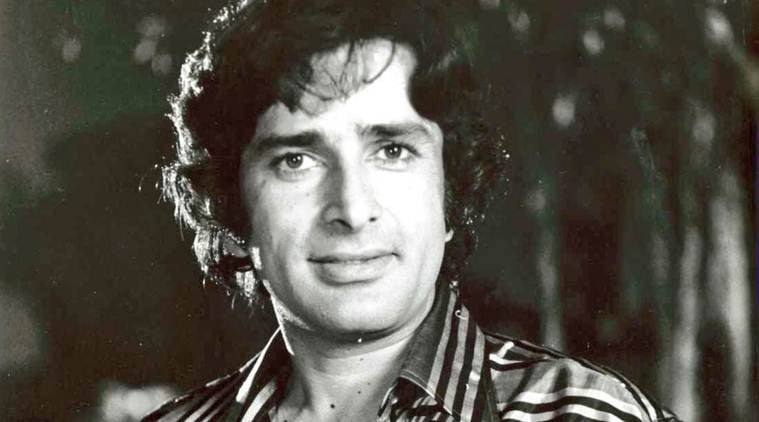

Dear All,
Shashi Kapoor was so beautiful. But it wasn’t just the boyish charm, expressive eyes, gorgeous eyelashes and physical elegance that so endeared him to his fans, it was all of that plus the sense that here was a good guy, a man whose smile would light up his face, and in turn could light up your whole day.
I have to admit though that the eyelashes were a major factor. So lovely. The face, so sensitive that you’d instinctively want to protect him from harm as you might a small child… Shashi Kapoor with his matinee idol looks was a heartthrob, a star, a legend… But also apparently (as all us fans suspected) a good guy, a decent human being.
This was one of the main comments that people who’d known him made following his death last week. They paid tribute to his career, said he was the best looking leading man Indian cinema had ever seen and everybody also commented on how likeable he was, what a good human being they thought he was.
It is astonishing that Shashi Kapoor was able to establish himself as a leading man in his own right. He had several tough acts to follow: his father was the well known actor Prithviraj Kapoor, his eldest brother Raj Kapoor dominated Indian films as a hero in the 1940s and 1950s, and his other brother Shammi Kapoor pranced and hopped through dozens of films in the 1960s as the ‘mujhay kehtay hain yahoo’ type of hero who skipped, leapt, did the twist and raised his eyebrows quizzically.
They were all very famous and despite the fact that Shashi Kapoor made his film debut as a child star (in 1948), his father had apparently made it clear to him that he would have to make his own way in the film industry. People who had worked with him remember a considerate and polite cast member rather than a man with the airs or graces linked to being Bollwood royalty.
With his passing one also got to revisit his various interviews and it is astonishing to see what grace and charm he exuded in these: velvet voice, clear diction and a total lack of arrogance. The normalcy and wit he seemed to convey was disarming and lovely. One interviewer (in 1984) lauded him for not dying his hair (the sideburns were white), and he cheerfully answered that of course he did dye his hair and had been doing for some time but just left the sides white. The immense courtesy and ease with which he spoke to interviewers harks back to a time when most stars were less prickly and less guarded than they are now. Also, less paranoid or communal in their outlook.
Shashi Kapoor’s marriage also seemed to reflect many things about his person and his character. He married actress Jennifer Kendal in 1958 when he was just 20, and friends say he never really recovered from her death (from cancer) in 1984. She seemed to have brought great stability and order to his life and most notably kept him from the obesity that seemed to be a family tendency. They shared a deep commitment to the arts which they made concrete by establishing the Prithvi Theatre in Mumbai.
Stories about the Kapoor clan being famously rigid about who their sons should marry have been around for decades. But Shashi Kapoor married the woman he wanted to despite her caste or nationality.
Sometimes people would describe Shashi Kapoor’s roles as frothy and his range limited. But I suspect they tended to label him thus because of his good looks -- he was actually a very, very versatile actor. The lightweight superficial playboy of Shakespeare Wallah is a far cry from the law-abiding brother of Deewar or the journalist of New Delhi Times. And, for me, one of his best performances was in the Merchant Ivory film Heat and Dust as the charismatic Nawab beneath whose easy charm you could glimpse a steely resolve and ruthlessness. It was a superb performance in a film that is a really brilliant observation of contrasts between the Indian and British character and approach to life.
Shashi Kapoor was such a class act… and for us fans: a true prince of hearts.
Best wishes